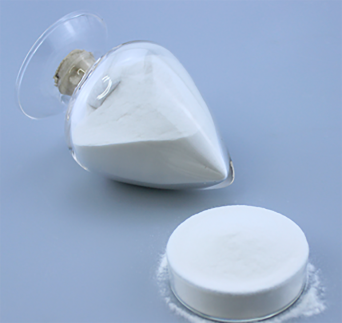
Jan . 01, 2025 13:02 Back to list
Applications and Benefits of Hydroxyethyl Cellulose in Various Industries and Products
Hydroxyethyl Cellulose (HEC) An Overview
Hydroxyethyl cellulose (HEC) is a non-ionic, water-soluble polymer derived from cellulose, which is one of the most abundant organic polymers on earth. HEC is widely used across multiple industries due to its unique physicochemical properties, making it versatile for numerous applications.
Chemical Structure and Properties
HEC is created through the reaction of cellulose, a natural polysaccharide, with ethylene oxide. This modification introduces hydroxyethyl groups, which enhance the solubility of the polymer in water. The extent of this etherification process can be controlled during production, resulting in HEC with varying degrees of substitution and molecular weights.
One of the most significant attributes of HEC is its rheological behavior it can modify the viscosity of solutions, imparting thickening or gelling properties. This characteristic is particularly valuable in applications where the control of fluid flow is essential. HEC solutions exhibit pseudoplasticity, meaning that they decrease in viscosity when subjected to shear stress, making them easier to handle and apply.
Applications in Various Industries
1. Pharmaceuticals In the pharmaceutical sector, HEC is often used as a thickening agent in topical formulations. It can stabilize emulsions and control the release of active ingredients, enhancing the efficacy of drugs. Additionally, due to its non-toxic nature, it is also employed in oral drug delivery systems.
2. Cosmetics and Personal Care HEC is a popular ingredient in cosmetic formulations, where it acts as a thickener and emulsifier. It helps improve the texture and stability of products like lotions, creams, and gels. Moreover, its ability to retain moisture makes it an effective humectant, contributing to skin hydration.
hec hydroxyethyl cellulose

3. Construction In the construction industry, HEC is widely used as an additive in cement and mortar formulations. It improves the workability and adhesion of construction materials, allowing for better spreadability and enhanced performance. By retaining water, HEC helps prevent cracking and shrinkage during the curing process.
4. Food Industry HEC finds applications in the food industry as a thickening agent, stabilizing emulsions and suspensions. It is utilized in sauces, dressings, and dairy products to achieve the desired consistency and texture without significantly altering the product’s flavor.
5. Agriculture In agricultural formulations, HEC is used in the production of fertilizers and pesticides. It can enhance the viscosity and stability of liquid formulations, improving the efficiency of active ingredient delivery. Additionally, HEC can assist in soil conditioning, promoting better water retention and nutrient availability.
Environmental Compatibility and Safety
As a cellulose derivative, HEC is derived from natural sources and is biodegradable, making it an environmentally friendly alternative to some synthetic polymers. Its non-toxic nature ensures safety in various applications, particularly those involving food, pharmaceuticals, and personal care products. Regulatory bodies, like the FDA and ECHA, have recognized HEC as safe for use in various consumer products.
Conclusion
Hydroxyethyl cellulose stands out as an essential ingredient across diverse sectors due to its multitude of functional properties. The ability to modify its viscosity and stability makes HEC a valuable component in formulations within pharmaceuticals, cosmetics, construction, food, and agriculture. With growing concerns about environmental sustainability and safety in consumer products, HEC's biodegradable and non-toxic characteristics position it well for continued use and innovation. As industries evolve and seek more sustainable alternatives, HEC is likely to remain a key player in the development of advanced materials and formulations. Whether improving the texture of a skincare product or enhancing the workability of construction materials, hydroxyethyl cellulose continues to make a significant impact across various fields, demonstrating the power of nature-derived polymers in modern applications.
-
Versatile Hpmc Uses in Different Industries
NewsJun.19,2025
-
Redispersible Powder's Role in Enhancing Durability of Construction Products
NewsJun.19,2025
-
Hydroxyethyl Cellulose Applications Driving Green Industrial Processes
NewsJun.19,2025
-
Exploring Different Redispersible Polymer Powder
NewsJun.19,2025
-
Choosing the Right Mortar Bonding Agent
NewsJun.19,2025
-
Applications and Significance of China Hpmc in Modern Industries
NewsJun.19,2025







